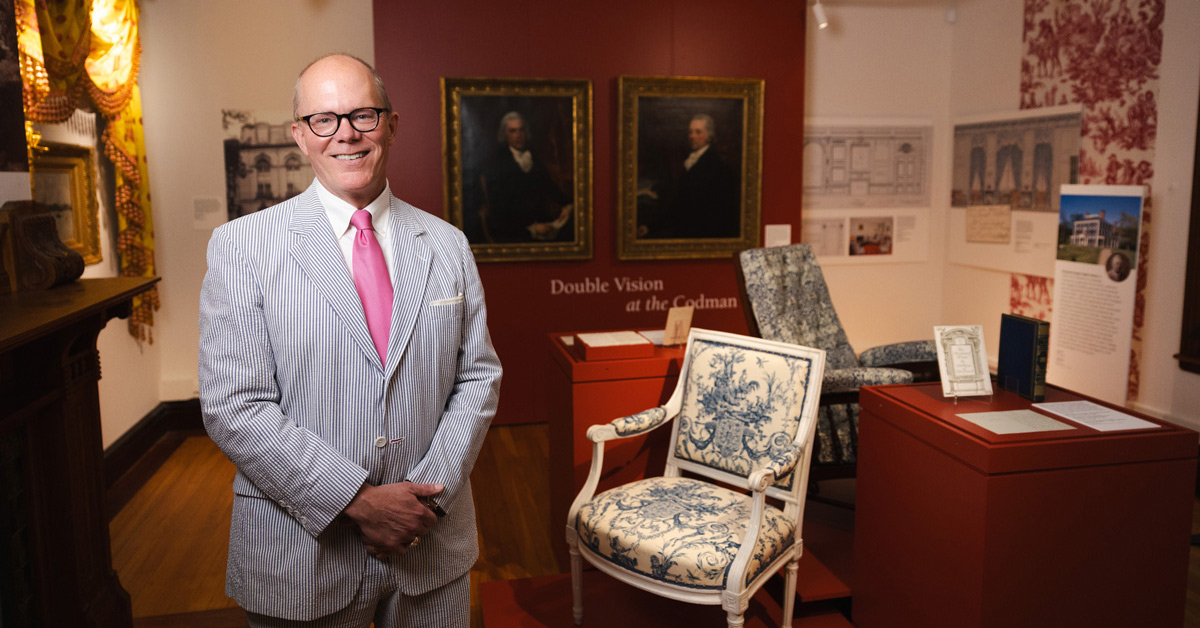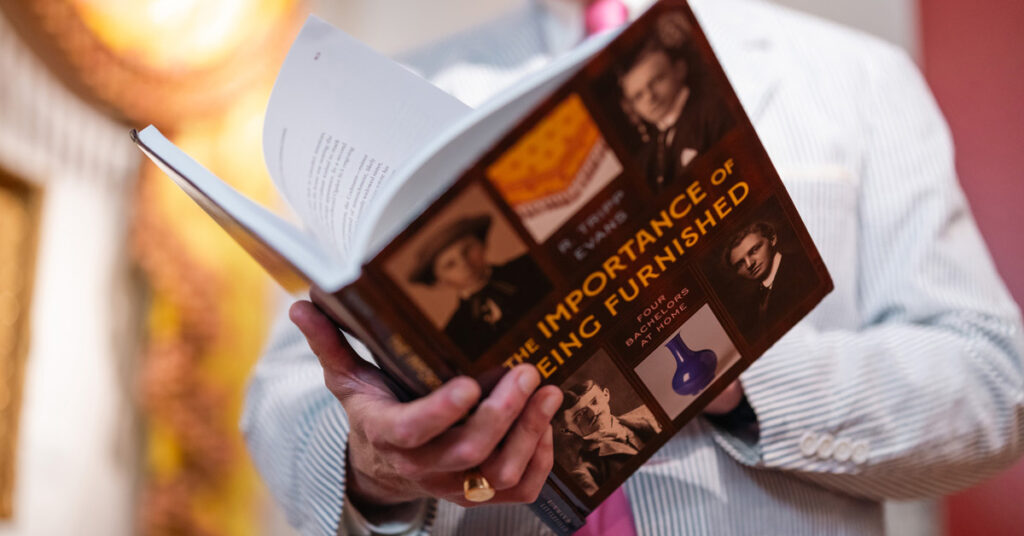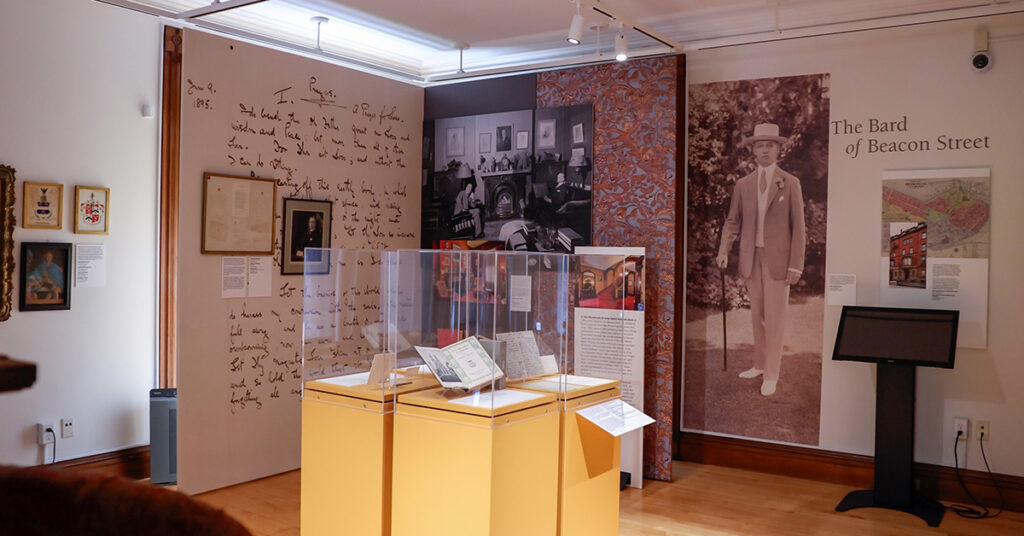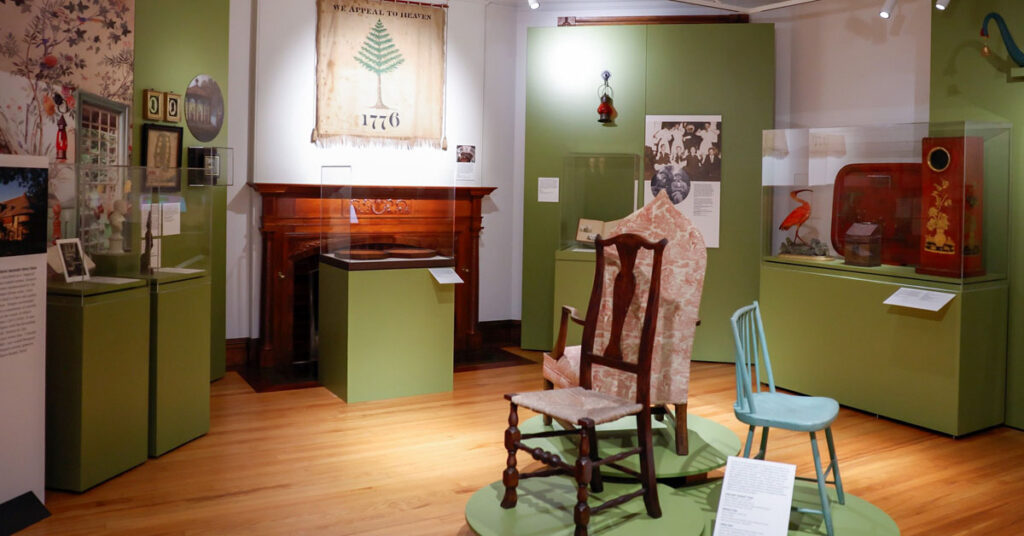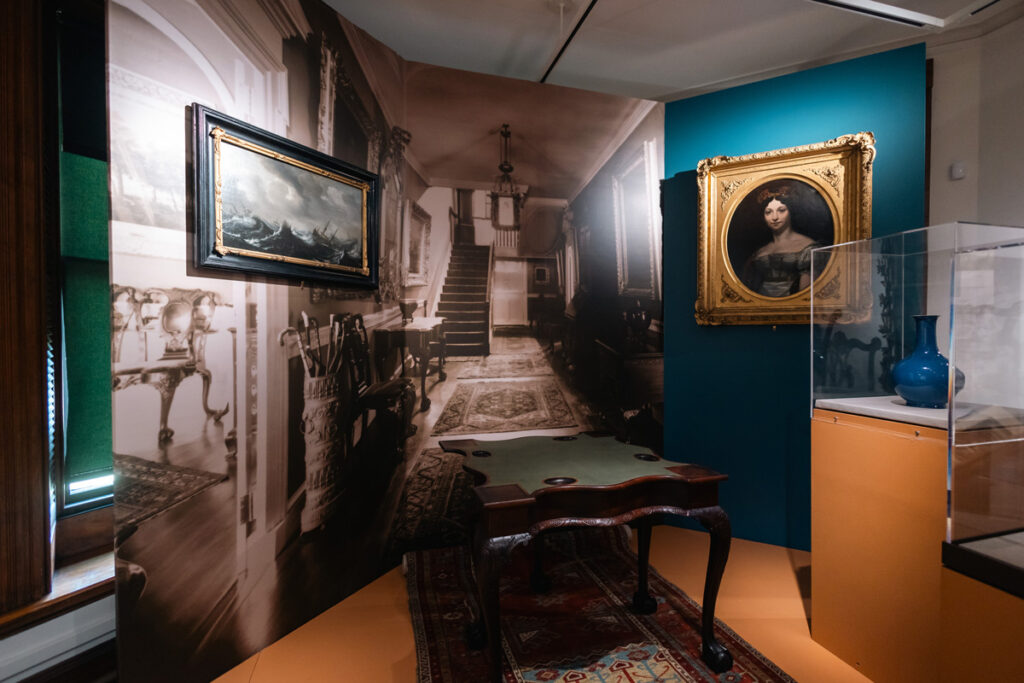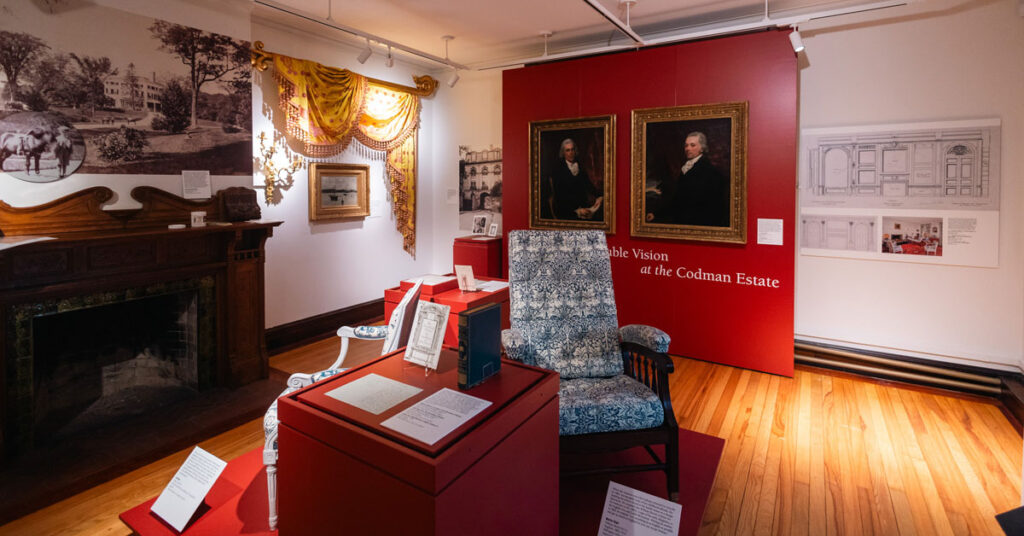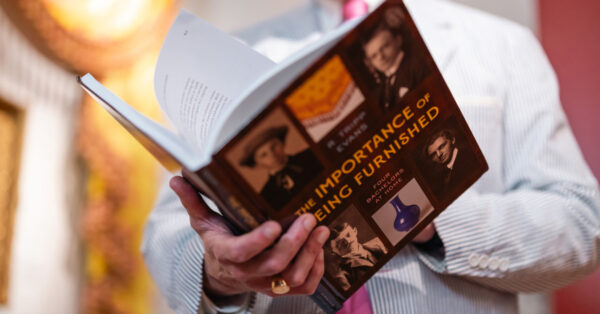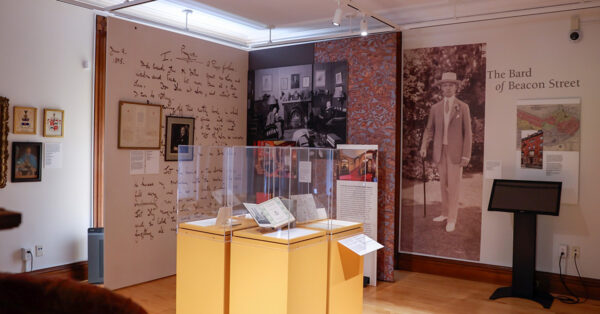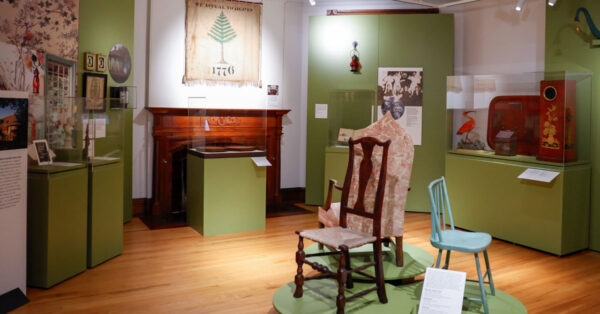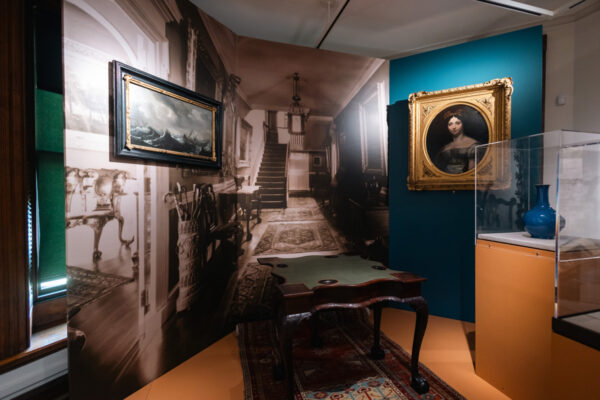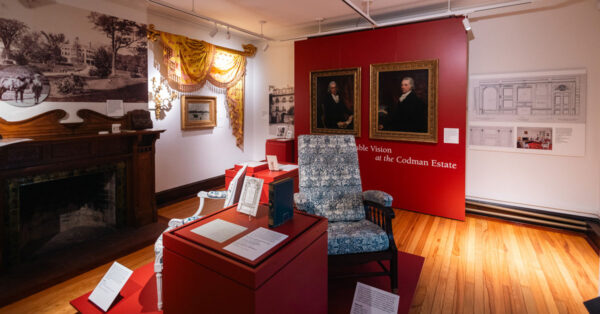Exploring interior design, identity
Wheaton College Professor of the History of Art Tripp Evans at the Eustis Estate in Milton, Mass., where the exhibition he guest curated at the invitation of Historic New England is on disply until October 27, 2024. (Photos by K. Ebner Creative)
Professor Tripp Evans’s new book looks at homes, lives of four bachelors
Tripp Evans, Wheaton College professor of the history of art, recently published his third book, The Importance of Being Furnished: Four Bachelors at Home (Bloomsbury, 2024).
His work spans the Gilded to the Jazz ages as it explores the lives and eclectically furnished homes of four New England bachelors and their impact on style. The richly researched book, which The Boston Globe wrote about in its New England Literary News section in June, also serves as a telling collection of mini-biographies.
“In their time, these so-called ‘artistic’ men were as admired as they were suspected by their peers. Praised as style leaders, they were perceived—whether accurately or not—to be homosexual, a label with potentially dangerous consequences in that era,” said Evans.
In recent years Evans’s scholarship has focused on the intersection between American style and sexual identity, seeking to understand the way artists’ private lives have fueled their public-facing work.
There is much to be learned from the history of interior design, and particularly from the careers of these four men—who were among its first professional practitioners, Evans said. This summer, he has been sharing those lessons in public programming and at several speaking engagements.
Most notably, at the invitation of Historic New England, Evans has served as guest curator for a major exhibition with the same title as his book—“The Importance of Being Furnished: Four Bachelors at Home,” which will be on view through Oct. 27, 2024 at the Eustis Estate in Milton, Mass.
Learn more about the book and the exhibition by listening to an interview with Professor Evans on The Culture Show at WGBH-FM Radio.
While conducting research for the book, Evans developed “The American House as Biography” as a Wheaton First-Year Experience course—a new version of which he will teach this fall. He also will offer an upper-level seminar in the history of furniture and interiors.
Both courses will look beyond the purely material nature of interior design, seeking instead to understand the private and cultural motivations behind the evolution of our homes, he said.
For Evans, the research for the book enabled him to return to his undergraduate and graduate training. Although he entered college hoping to become a lawyer, when he enrolled in a number of architectural history courses during his sophomore year, he discovered his passion.
Eventually earning a bachelor’s degree in architectural history, he worked for a year at Christie’s auction house in London and went on to earn a master’s degree and a Ph.D. in history of art at Yale University, where he was named the Henry McNeil Fellow in American Decorative Arts.
A Wheaton professor since 1997, Evans published his first book, Romancing the Maya: Mexican Antiquity in the American Imagination, 1820–1915 (University of Texas Press) in 2004 and his second, Grant Wood: A Life (Alfred A. Knopf), in 2010, which won him the 2010 National Award for Arts Writing.
“Of the three books I have written, this one has taken me back to my original interests in architectural history and material culture,” Evans said.
The exhibition Evans guest curated continues through October 27. Historic New England hosts just one exhibition each year at the estate, yet this multi-institutional event is a first for the organization.
“Traditionally, Historic New England exclusively highlights its own rich collections,” Evans said. “This is the first show the organization has hosted in partnership with two other institutions—the RISD Museum and the Gibson House Museum—and under the direction of a single guest curator.”
“There are fascinating stories attached to every object in this show,” said Evans, “but, to truly appreciate the magic these men pulled off, it is best to experience these environments in person.”

